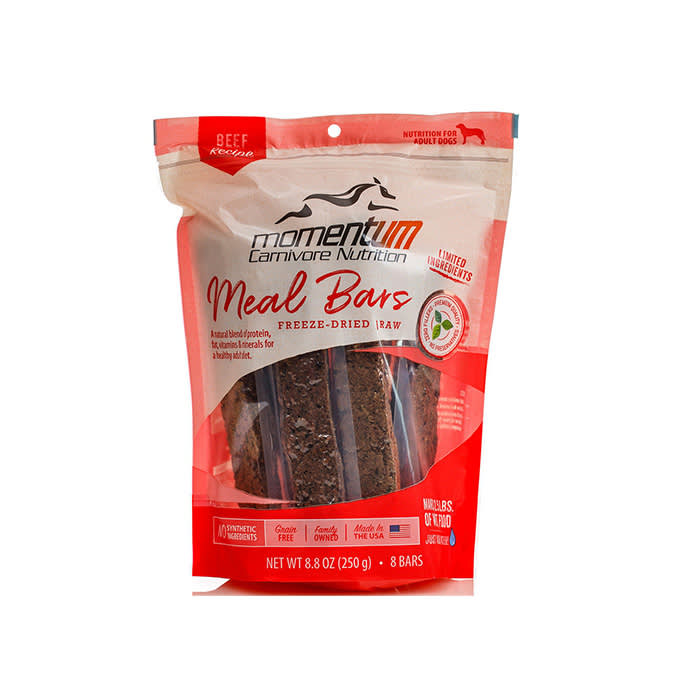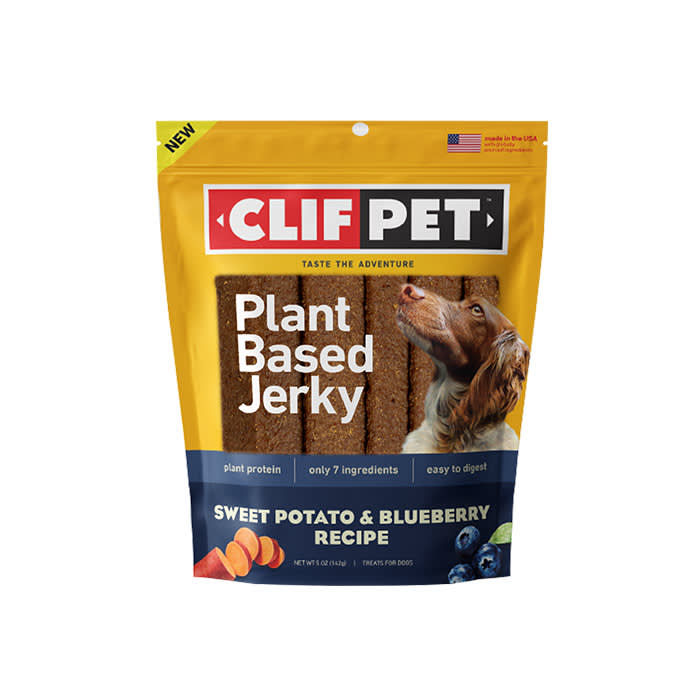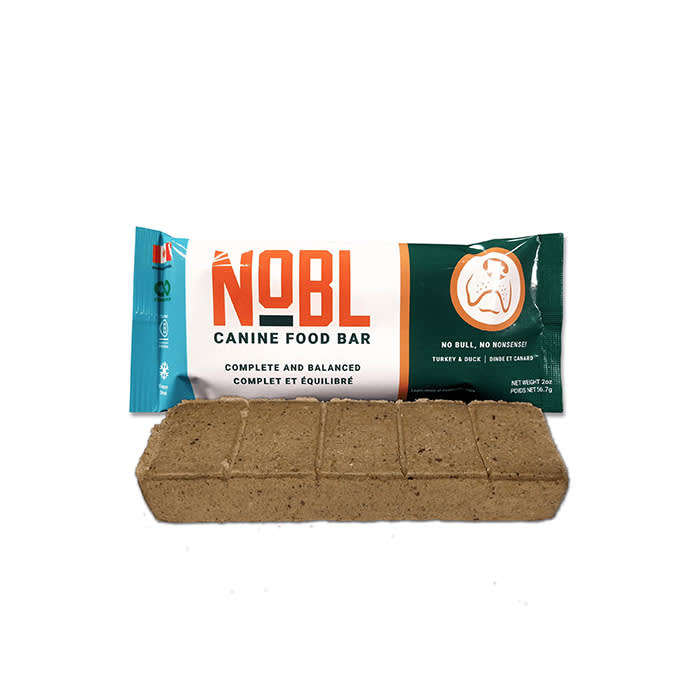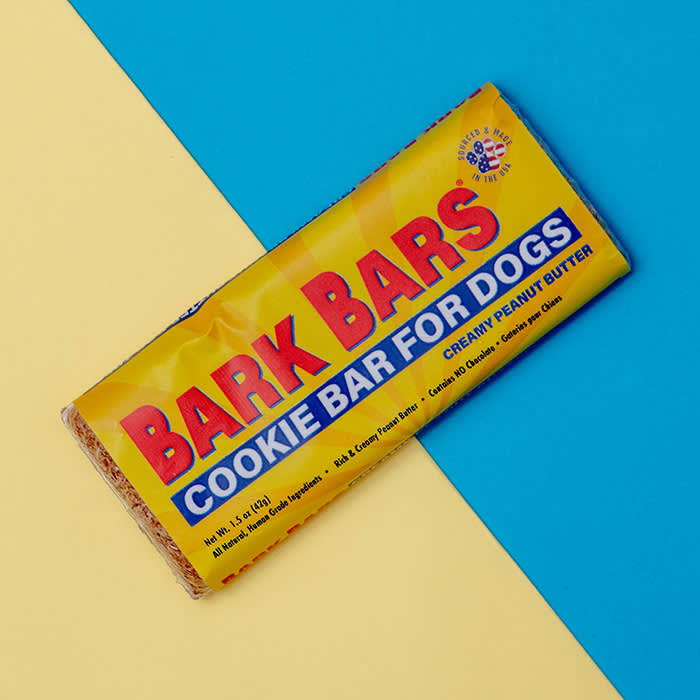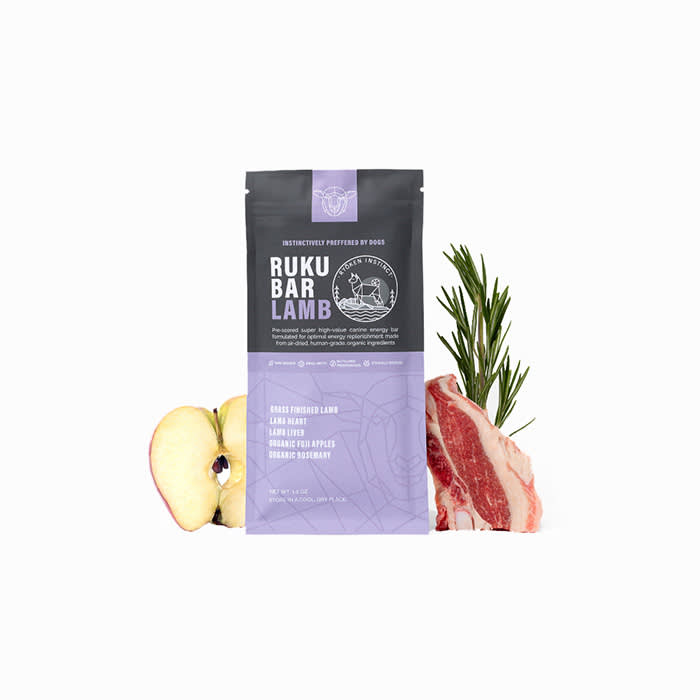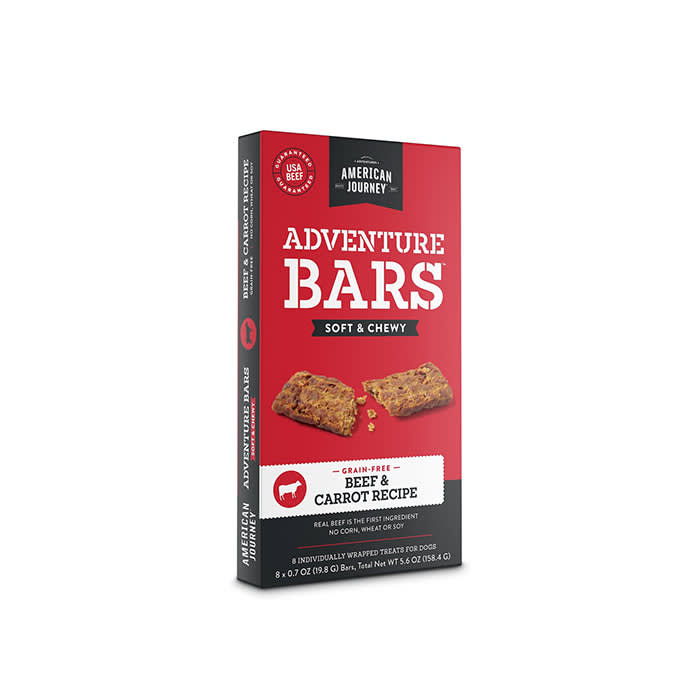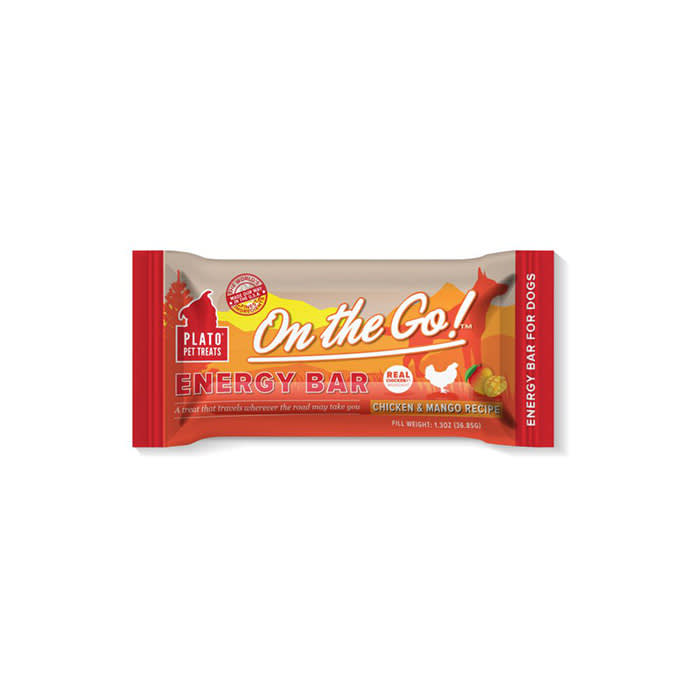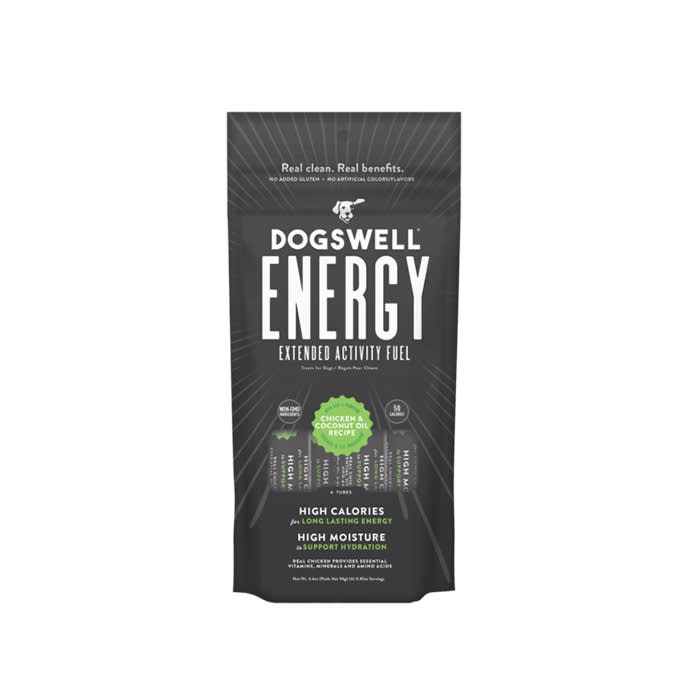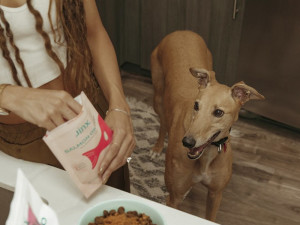8 Protein Bars That Will Have Your Dog in Better Shape Than Jason Momoa
The meal supplements are no longer reserved for gym rats — active canines can also indulge in the quick treats.
There are few things more vital to a dog’s health than protein. Unlike the dudes pumping creatine shakes at lunch, canines need as much of these nutrients as they can get. “It’s important for a dog to have sufficient protein in their diet as it provides essential amino acids that the body cannot make on its own and non-essential amino acids that will be used in the body to make other proteins, enzymes, hormones, and DNA,” veterinary nutritionist Dr. Becca Leung says.
In fact, The American Association of Feed Control Officials (AAFCO) guidelines recommendopens in new tab nearly one-fifth of any adult dog’s diet should be compromised of protein — a number that rises for growing pups. While most standard kibble will contain close to these percentages, some specialists recommend that dogs get even more to be extra safe. One of whom is Dr. Bradley Quest, a veterinarian who confirms there are plenty of reasons to abide beyond the guidelines.
“If dogs do not get enough protein containing essential amino acids in their diet, they may have problems. For example, young dogs may not grow like they should. Additionally, dogs that do not get enough protein can have poor hair coats, skin problems, and possibly weight loss,” Dr. Quest explains before adding that issues with other organ groups in the digestive, immune, and nervous systems are also a risk.
Thankfully, a recent trend aims to remedy this concern — especially for busy pet parents. Just as you might grab a protein bar as a quick snack on your way to the gym — or the couch — your dog can, too. Not to mention, experts agree with the sentiment. “A benefit of a protein bar or supplement is that it may be convenient for pet parents to take with them on the go, especially for active pets. They are even handy for the occasional long walk for the average pet that may need a little more energy on the way,” Dr. Quest says.
How much do you spend on your pet per year?
At the same time, he warns not all protein bars for dogs are created equal and suggests inspecting the ingredients before buying. While both animal and plant-based sources of protein are acceptable and useful, Dr. Quest notes that if a product is not labeled as complete and balanced, pet nutritionists advise that they do not make up more than 10 percent of the dog’s daily caloric intake.
Dr. Leung also points to a few other factors worth considering, namely where the protein is coming from and the lifestyle of whom it’s going to. “How much a dog needs ultimately depends on the quality of the protein source and animal factors such as the dog’s activity level, its life stage — growing, adult, reproduction or senior — or if the diet is intended for weight loss,” she says.
Dr. Leung’s final counsel before aimlessly browsing the treat aisle: Don’t be greedy. Just as regular overindulgence doesn’t do our minds, hearts, or livers any good, the same is true for our dogs’ health and fellow humans. “It’s also important to remember that protein is not stored in the body, so any eaten above what is truly required is metabolized as energy in the body. This is fine except that the amount of protein available in this world is limited and is becoming scarcer for everyone, humans and pets alike, so it is important to consider this when making choices about what we should be feeding our pets,” she explains.
Given all that information and instruction, your interest in canine protein bars may be waning, but don’t be discouraged — there are plenty of nutritious and helpful bars for your pup to munch on. Below, eight options for whether you’re on the go or just want to introduce a bit more protein into your dog’s diet.
Btw, our editors (and their pets) picked out these products. They’re always in stock at the time we publish, but there’s a chance they’ll sell out. If you do buy through our links, we may earn a commission. (We’ve got a lot of toys to buy over here, you know?)


